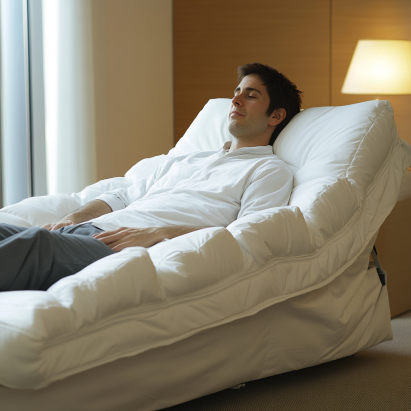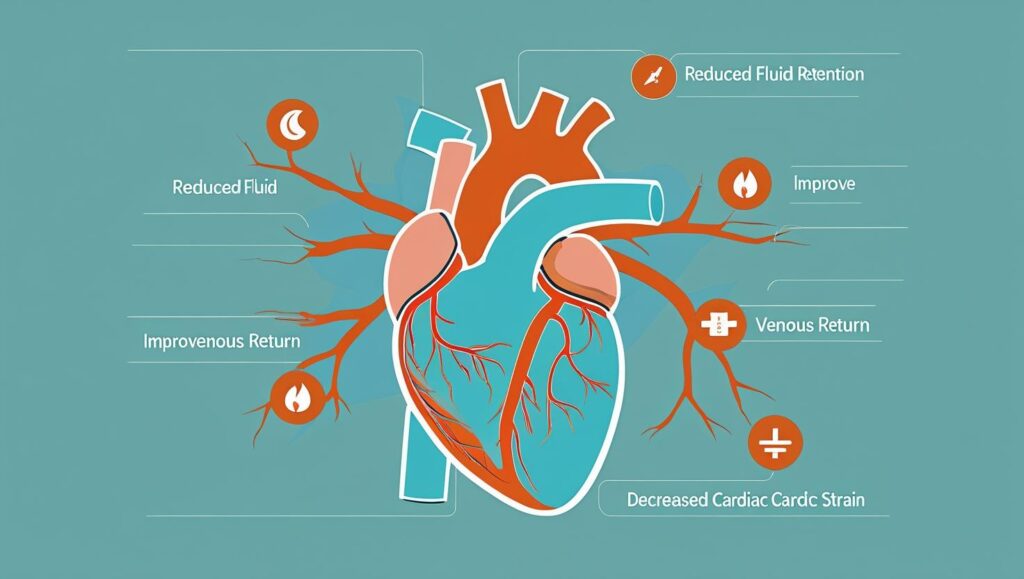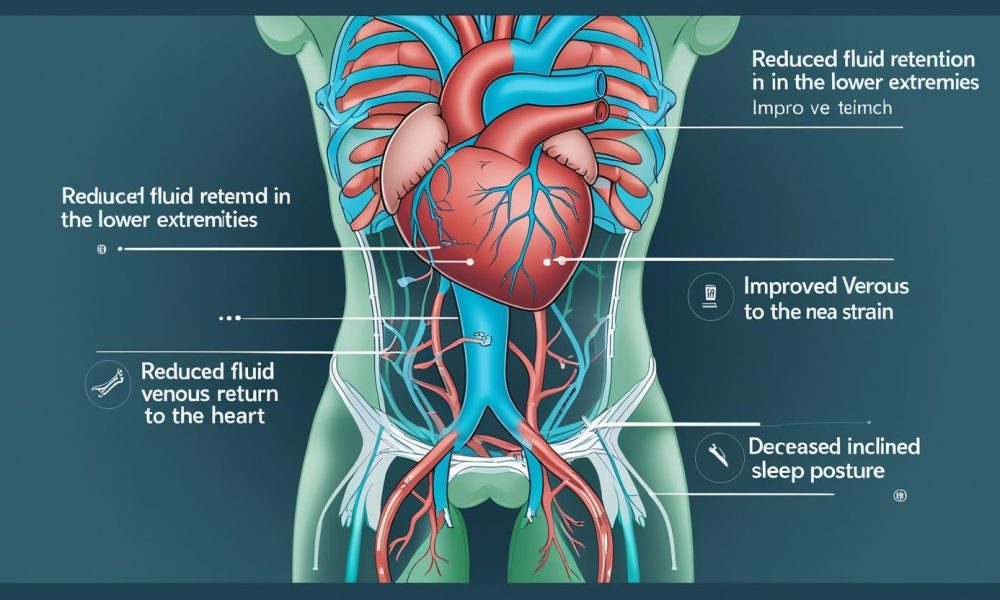Inclined Bed Therapy and Heart Health: 5 Proven Benefits
Inclined Bed Therapy and heart health are more interconnected than you might think. By elevating your bed’s head by about six inches, you can harness gentle gravity to help circulation, balance blood pressure, and reduce swelling. This natural approach may support long-term cardiovascular wellness. For more insights, explore our comprehensive IBT guide.
Key Takeaways
- Elevating your bed can improve blood circulation and reduce strain on the heart.
- Inclined Bed Therapy and heart health benefits may include supporting healthy blood pressure and reducing edema.
- Better oxygenation from an incline can enhance sleep quality and nighttime heart recovery.
- Pair IBT with exercise, nutrition, and hydration for amplified cardiovascular benefits.
Understanding Inclined Bed Therapy
Inclined Bed Therapy (IBT) means lifting the head of your bed by roughly six inches to create a gentle slope. Unlike wedge pillows, IBT supports your entire body, making it a sustainable posture change that may ease cardiovascular workload overnight.
Simple risers or sturdy blocks can turn your bed into a circulation-friendly sleep setup.
1. Enhancing Circulation and Reducing Cardiovascular Strain
One of the biggest overlaps between Inclined Bed Therapy and heart health is smoother blood return to the heart. A slight incline uses gravity to limit fluid pooling in the legs and may lower cardiac workload during sleep.
Example: After standing all day, a gentle incline can help reduce the “heavy legs” feeling by morning.

2. Supporting Healthy Blood Pressure Levels
Balanced blood pressure is essential for heart health. Early research suggests IBT may help regulate nocturnal blood pressure. The National Sleep Foundation highlights posture and sleep quality as meaningful factors in cardiovascular regulation.
Scenario: Someone with mildly elevated readings notices steadier nighttime numbers after a few weeks of consistent IBT.
3. Alleviating Swelling and Edema
Swelling in the legs and ankles can reflect circulatory strain. Inclined Bed Therapy helps reduce edema by promoting venous return and lymphatic drainage, which may ease morning puffiness—especially for people who stand for long hours.
Example: A retail worker goes to bed with swollen feet and wakes with lighter, less puffy legs after adopting IBT.

4. Improving Sleep Quality and Oxygenation
Deep, restorative sleep depends on steady airflow. An incline can reduce airway collapse, which may ease snoring and mild sleep-disordered breathing. The American Academy of Sleep Medicine notes that sleep posture adjustments can play a role in managing airway issues that affect cardiovascular health.
Scenario: A habitual snorer tries IBT and both partners enjoy quieter, more continuous sleep.
5. Implementing Inclined Bed Therapy
Getting started is simple: use bed risers, solid wood blocks, or an adjustable frame to lift the head side by about six inches. Always ensure stability and safety. For eco-conscious options, explore sustainable bed frames designed for IBT.
- Certifications to consider: Review material and emissions standards when upgrading frames and mattresses—see bedding certifications overview and Happsy mattress certifications.
- Quick comparison: Flat beds keep fluids neutral; IBT may enhance circulation, reduce swelling, and support healthier overnight blood pressure.

Eco-friendly bed frames can make a stable, sustainable incline easy to maintain.
Conclusion
Inclined Bed Therapy and heart health are closely connected. From smoother circulation to less swelling and steadier oxygen flow, IBT offers a simple, low-effort way to support your heart nightly. Always check with your clinician before making health changes. For more heart-smart bedroom strategies, visit Cozy Bed Quarters.
FAQ
Is Inclined Bed Therapy suitable for everyone?
Most people tolerate IBT well, but those with medical conditions should consult their healthcare provider first.
How long does it take to see results from Inclined Bed Therapy?
Many people notice better sleep and improved comfort within a few weeks of consistent use.
Can pillows replace the need for Inclined Bed Therapy?
No. Pillows only lift your head and can strain the neck. For full-body benefits, elevate the entire bed frame.
Related reading from Cozy Bed Quarters
- Inclined Bed Therapy Benefits for Sleep and Circulation
- The Impact of Sleep on Heart Health
- Best Sustainable Bed Frames for IBT























